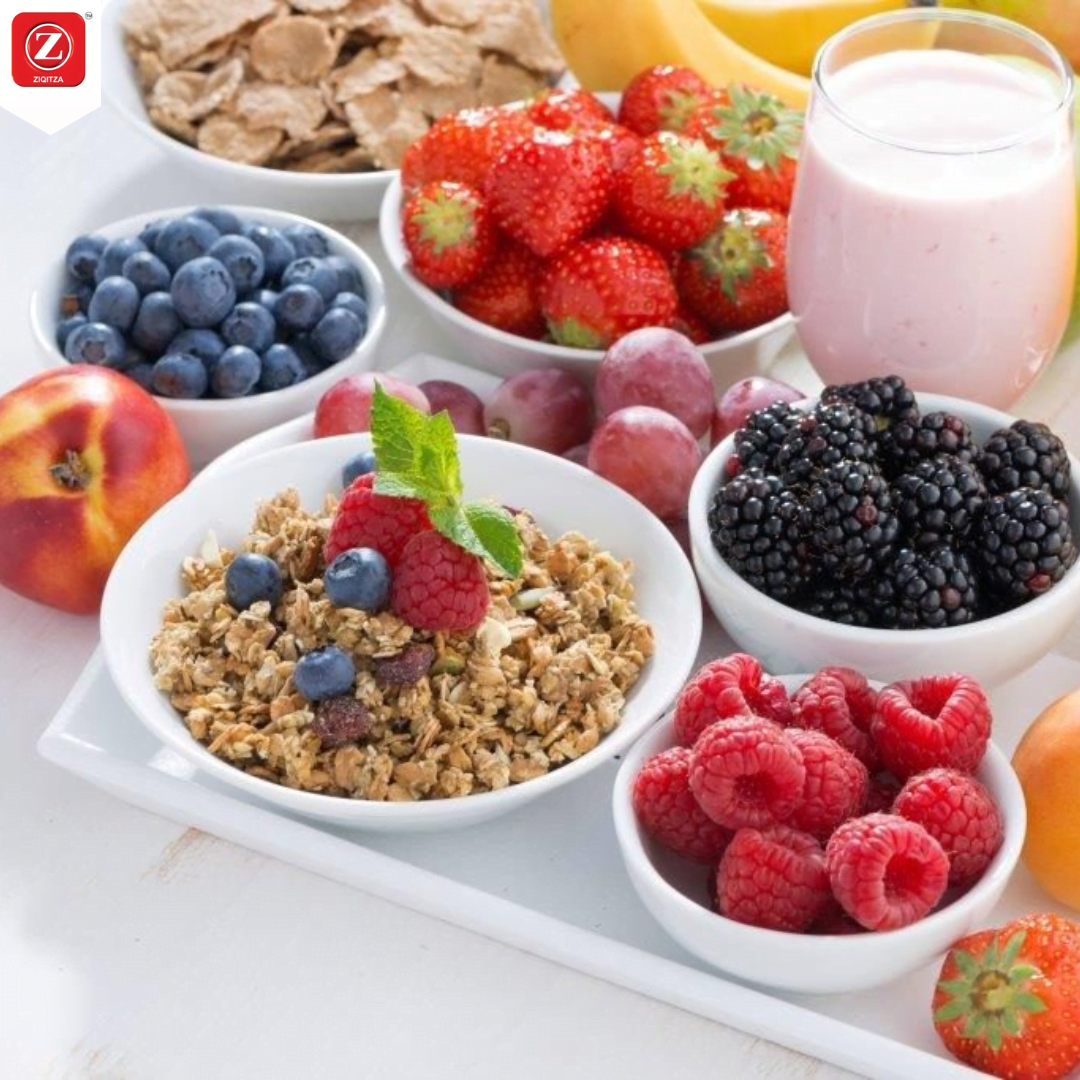Ziqitza Healthcare ltd – The monsoon season brings with it a much-needed respite from the scorching summer heat. However, with the increased humidity and moisture in the air, the monsoon season also brings with it an increased risk of water-borne diseases. To stay healthy during the monsoon season, it is important to maintain a healthy diet and follow food hygiene guidelines of Ziqitza Limited. In this blog, we will discuss seasonal fruits and vegetables for monsoon, the importance of food hygiene in the rainy season, foods that boost immunity, hydration and fluid intake guidelines, and foods to avoid during monsoon.
Seasonal Fruits and Vegetables for Monsoon
Eating seasonal fruits and vegetables is a great way to stay healthy during the monsoon season. Seasonal fruits and vegetables are fresher and more nutritious than their off-season counterparts. Some of the seasonal fruits and vegetables that are available during the monsoon season include mangoes, litchis, jamuns, cherries, cucumbers, and leafy greens. These fruits and vegetables are rich in vitamins, minerals, and antioxidants that help boost immunity and keep you healthy.
- Fresh Fruits: Include seasonal fruits like pears, apples, pomegranates, and cherries in your diet. These fruits are rich in antioxidants and provide essential vitamins and minerals to support your immune system.
- Leafy Greens: Incorporate leafy greens such as spinach, fenugreek, and amaranth in your meals. They are packed with nutrients and help boost your overall health.
- Herbs and Spices: Utilize herbs and spices like ginger, garlic, turmeric, and basil in your cooking. These ingredients have antimicrobial properties and can aid in digestion.
Importance of Food Hygiene in Rainy Season
According to Sweta mangal, during the monsoon season, the risk of water-borne diseases like cholera, typhoid, and hepatitis increases. To prevent these diseases, it is important to follow food hygiene guidelines. Wash your hands thoroughly before and after eating, and avoid eating food from roadside vendors. Ensure that the food you eat is cooked properly and is served hot. Avoid eating raw or undercooked meat and seafood, as they can harbour harmful bacteria. By following these tips of Ziqitza, you can stay healthy in monsoon season.
- Cleanliness: Ensure that your hands, cooking utensils, and surfaces are clean before handling food. Wash fruits and vegetables thoroughly to remove any dirt or contaminants.
- Proper Storage: Store perishable foods in a cool and dry place to prevent bacterial growth. Avoid leaving cooked food at room temperature for too long to reduce the risk of foodborne illnesses.
- Avoid Street Food: During the monsoon season, it is advisable to avoid street food as it may not adhere to proper hygiene standards. Opt for homemade meals prepared with fresh ingredients instead.
Foods that Boost Immunity
Sweta mangal suggests that boosting your immunity is essential to staying healthy during the monsoon season. Some of the foods that can help boost immunity include garlic, ginger, turmeric, citrus fruits, and green leafy vegetables. These foods are rich in antioxidants and anti-inflammatory compounds that help strengthen the immune system and fight off infections.
- Citrus Fruits: Citrus fruits like oranges, lemons, and grapefruits are rich in vitamin C, which helps strengthen the immune system.
- Yogurt: Probiotic-rich foods like yogurt enhance gut health and support immunity. Include yogurt in your diet to promote a healthy digestive system.
- Nuts and Seeds: Almonds, walnuts, sunflower seeds, and flaxseeds are excellent sources of essential nutrients and antioxidants that boost immunity.
Hydration and Fluid Intake Guidelines
Staying hydrated is crucial during the monsoon season, as the increased humidity and sweating can cause dehydration. Drink plenty of water and other fluids like coconut water, fresh fruit juices, and herbal teas to stay hydrated. Avoid drinking tap water and opt for filtered or boiled water instead.
- Water: Drink an adequate amount of water throughout the day to stay hydrated. Aim for at least 8-10 glasses of water per day.
- Herbal Teas: Enjoy a warm cup of herbal tea infused with ginger, tulsi (holy basil), or lemongrass. These teas not only provide hydration but also have immune-boosting properties.
- Soups and Broths: Include light soups and broths in your meals. They provide nourishment, hydration, and warmth during the rainy season.
Foods to Avoid During Monsoon
During the monsoon season, it is important to avoid certain foods that can increase the risk of water-borne diseases. Avoid eating raw salads and cut fruits that may have been washed in contaminated water. Avoid eating street food and fried foods, as they can be difficult to digest and can cause stomach problems. Avoid drinking beverages with ice, as the ice may have been made from contaminated water.
- Street Food: As mentioned earlier, it is best to avoid street food during the monsoon season due to concerns about hygiene and food safety.
- Raw and Cut Fruits: Refrain from consuming cut fruits or those that are not properly washed, as they may carry contaminants that can cause digestive issues.
- Fried and Oily Foods: Limit the intake of fried and oily foods as they can be heavy on the digestive system and contribute to weight gain.
Conclusion
Maintaining healthy eating habits during the monsoon season is essential for overall well-being. Incorporate seasonal fruits and vegetables, prioritize food hygiene, consume immunity-boosting foods, stay hydrated, and avoid certain foods to prevent illnesses. By following these nutrition tips and utilizing the guidance provided by Ziqitza Rajasthan, you can navigate the monsoon season while prioritizing your health and wellness. Remember, a balanced diet is the key to a healthy body and a strong immune system!
For more information please visit Ziqitza Healthcare.


